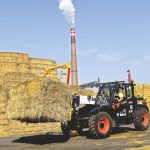“Data-driven decision-making and actions carried out with the implementation of AI ensure accuracy and timely actions to improve system performance and end-product quality.”

Haber is a well-known provider of automated AI-driven solutions which helps in bringing accurate and real-time insights, enabling the industries in their process management activities. In interview with Paper Mart, Mr. Felix Sahayaraj, Vice President – Sales, Haber, shares how the sizing process can be improved by eLIXA®. Further, he explains how Artificial Intelligence (AI) has the potential to optimize chemical consumption while discussing the possibilities automation brings forth to the pulp and paper industry as a whole.
Paper Mart: To start off our interaction, could you shed some light on the sizing process?
Felix Sahayaraj: Sure. As we all know, sizing refers to the method by which additives are introduced to the pulp stock to improve the water-repellency of the paper produced. External sizing done at the size press influences the end product quality by varying the sheet strength, which is improved by controlling the resistance of paper to stress or penetration by liquids.
With, Haber’s eLIXA®, we use Artificial Intelligence (AI) & Machine Learning (ML) to optimize the process, helping to achieve Wax Pick, Cobb Values, and other target properties with minimal fluctuation.
Watch: Paper Mart News Roundup
PM: Take us through the eLIXA® platform and its key advantages.
FS: eLIXA®’s platform provides real-time AI/ML-based closed-loop control catered towards optimizing the surface sizing of the paper. Key process variables like starch solids, starch viscosity, pH, temperature, and the surface size addition rate are measured and uploaded to the cloud in real time. The big data analysis is carried out in the cloud and the closed-loop control ensures that sizing and strength properties are maintained within the target range at all times.
Thus, the implementation of AI/ML through eLIXA® can optimize this process and result in a marked improvement in the quality of the paper. In fact, at one of our customers, it was able to reduce their surface starch addition from 4% to 3.2% with no change in strength properties.
PM: So, can we say that automation is the next step in improving process performance?
FS: Yes, absolutely! Having grown and adapted over the years, it is important we embrace Industry 4.0. – real-time monitoring and communication between machines which will reduce the workload on human labour which can be directed towards tasks of higher importance. The automation of repetitive tasks would also aid in improving the overall effectiveness of processes in the industry.
Also Read: Best Paper Mills has Plans to Set Up 100,000 TPA Kraft Paper Plant
Data-driven decision-making and actions carried out with the implementation of AI ensure accuracy in decisions and timely action to improve system performance and end-product quality. It has the potential to transform the entire industry, right from the sourcing of raw materials, to the stage of delivering the end product to the customers.



